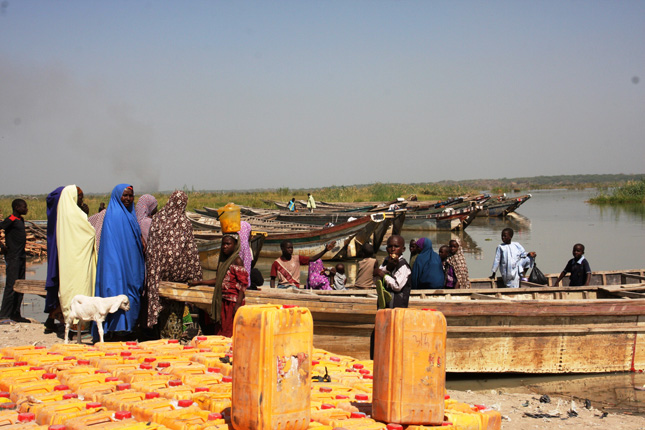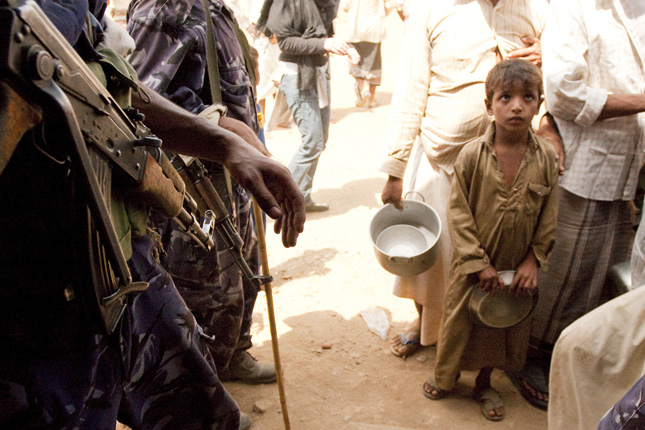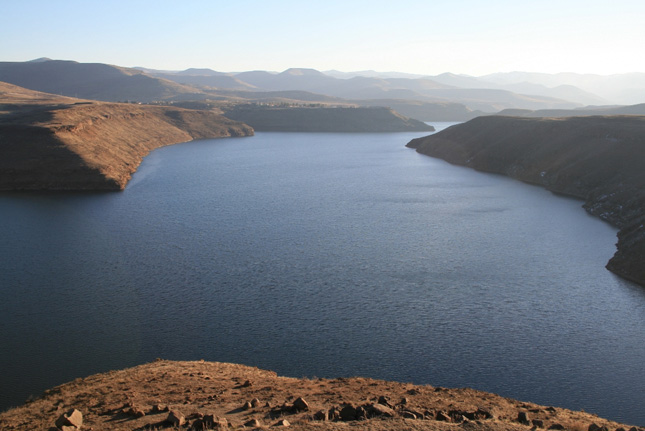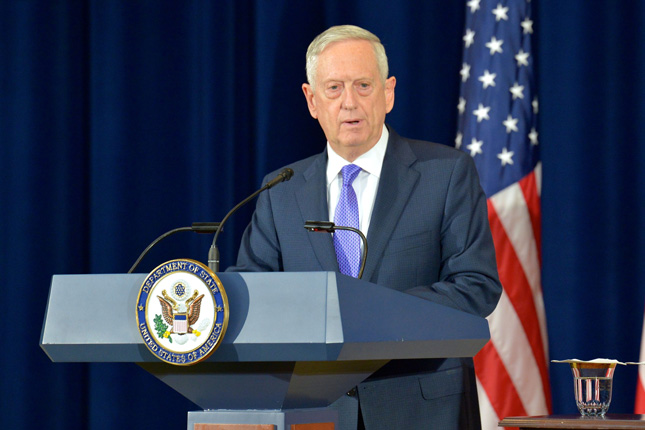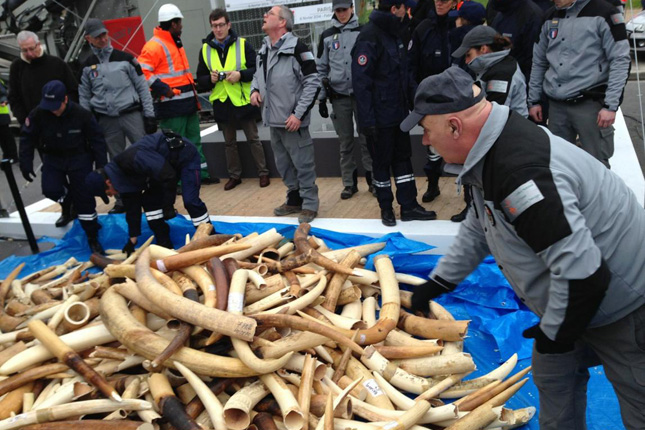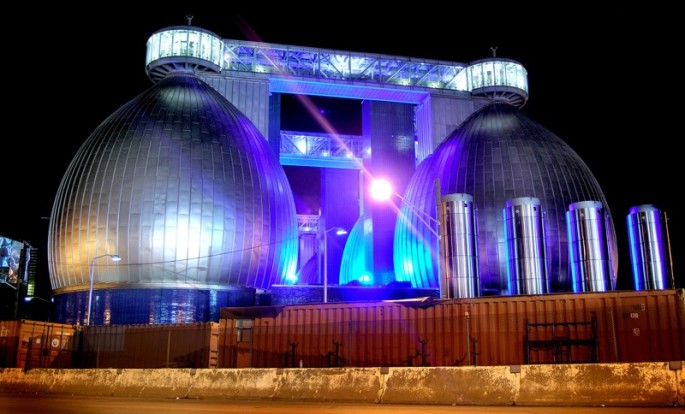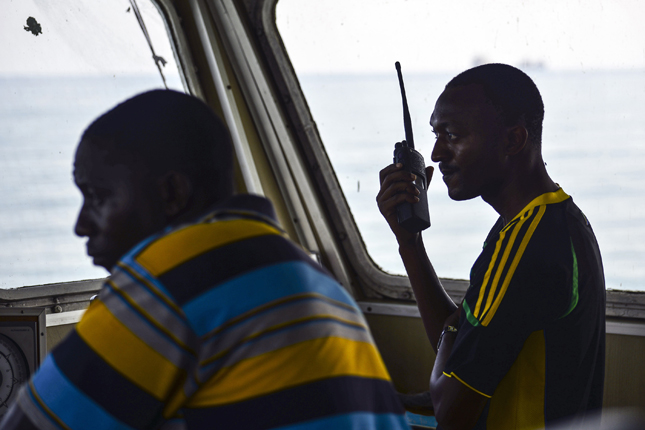-
Environmental Cooperation Can Facilitate Peace Between States
›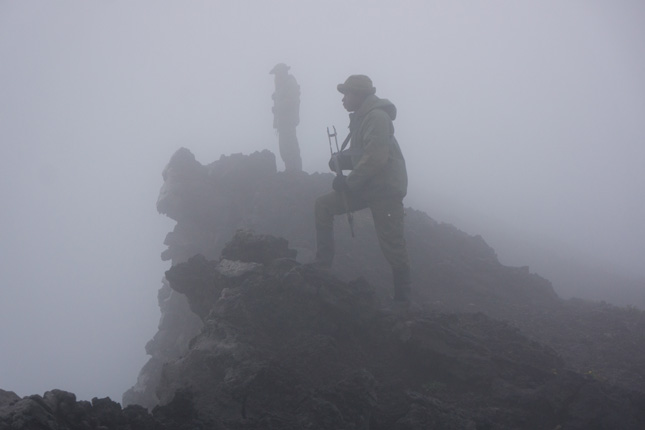
Environmental stress and climate change can accelerate instability and conflict—but shared environmental problems can also be a source of cooperation and facilitate peacemaking between states. Transnational environmental problems are common threats and often cross national boundaries, requiring international cooperation to address. In turn, this cooperation can provide a good entry point for building trust and cooperation.
-
The Role of Water Stress in Instability and Conflict
›
“The demand for water will not be linear,” said Vice Admiral Lee Gunn (USN-Ret,), currently vice chairman of the CNA Military Advisory Board, at a recent Wilson Center event on water and security. As people’s quality of life improves, “the demand for water will increase as well. And so the stresses that we already see around the world—the arguments over basin rights for water, the depletion of water in major cities around the world—we think will aggravate problems that already are beginning to manifest themselves,” he said.
-
On Streetlights and Stereotypes: Selection Bias in the Climate-Conflict Literature
›
Scholarly attention to the links between climate change and conflict has increased. But which places are analyzed most frequently by researchers, and what are the implications of their choices?
-
A Matter of Survival: Learning to Cooperate Over Water
›
“Water security and management represent the cornerstone of global conflict prevention,” said President Danilo Türk, chair of the Global High-Level Panel on Water and Peace and former president of Slovenia, at a recent Wilson Center event on water and peace. “The only alternative to water is water, and therefore, the matter of water is a matter of survival,” said Sundeep Waslekar, president of Strategic Foresight Group.
-
Secretary of Defense Announces National Defense Strategy
›
The Trump administration’s first National Defense Strategy, which was released last Friday, outlines the U.S. Department of Defense’s national security goals in a world it describes as rife with great power competition between the United States, Russia, and China. Climate change – which some military leaders warn poses a looming threat to the effectiveness of American military power – was not mentioned, in stark contrast to the previous administration’s strategic priorities. National security and defense strategies issued by the Obama Administration highlighted the dangers climate change poses to national security, including “increased national disasters, refugee flows, and conflicts over basic resources like food and water.”
-
Criminal Elements: Illegal Wildlife Trafficking, Organized Crime, and National Security
›
“The same criminals that are trafficking in drugs, guns, and people, traffic in wildlife,” said Christine Dawson, the director of the Office of Conservation and Water at the U.S. Department of State, at a recent event in the Wilson Center’s “Managing Our Planet” series. Experts from Vulcan Productions and Brookings Institution joined Dawson to discuss the links between national security and wildlife trafficking, which is now the fourth largest transnational crime in the world, and to mark recent legislative successes and innovative tools.
-
Nothing Wasted: The Waste-To-Energy Revolution in China
›
Sewage—refuse liquids or waste matter usually carried off by sewers—is at the front lines of a global movement for clean energy. Innovative U.S. cities are digging into their dirtiest depths to create new sources of power that optimize economic benefits, generate clean energy, and control pollution. This wastewater-to-power movement is just beginning to catch on in China. But with some of the largest and most densely populated cities in the world, the country could be poised to lead a sludge-to-energy revolution.
-
One in 10 Interstate Disputes Are Fishy – And the Implications Stink
›
Fisheries are a surprisingly common reason for conflict between countries. Between 1993 and 2010, 11 percent of militarized interstate disputes (MIDs) – conflicts short of war between two sovereign states – involved fisheries, fishers, or fishing vessels. While the conflicts often involve fresh fish, the implications for global peace and prosperity stink like fermented herring. As climate change threatens to change fish habitats, new governance strategies may be needed to prevent these “fishy MIDs” from sparking broader conflicts.
Showing posts from category environmental security.


